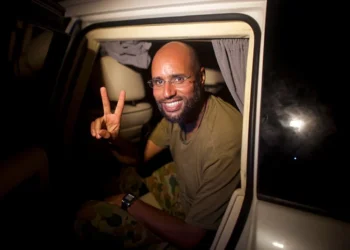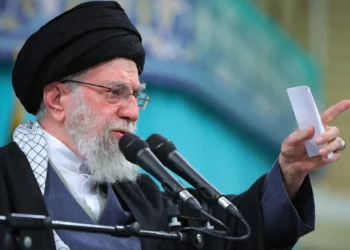DODOMA (Realist English). Tanzanian President Samia Suluhu Hassan was sworn in on Monday for a second term, following a landslide re-election that opposition groups and international observers have condemned as fraudulent and violently repressed.
The inauguration took place at a military base in Dodoma, closed to the public amid heightened tensions after three days of deadly protests. State television broadcast the ceremony showing government officials and foreign diplomats in attendance, but no crowds were allowed.
Hassan, who first assumed power in 2021 after the death of her predecessor John Magufuli, was declared the winner of the October 29 election with 97.66% of the vote, facing only minor opposition candidates after the main opposition party, Chadema, was barred from running.
Tensions remain high in Dar es Salaam and other cities, where shops were shuttered and streets deserted under a continuing nationwide internet blackout that began on election day.
Opposition and human rights concerns
Chadema rejected the results as a “sham,” claiming hundreds of people were killed in clashes between protesters and security forces that used tear gas and live ammunition to disperse demonstrations.
“These results have no basis in reality — no genuine election took place in Tanzania,” the party said in a statement.
A diplomatic source told AFP there were “credible reports of hundreds, possibly thousands, of deaths” registered at hospitals across the country. Rights organizations say the blackout may be used to suppress evidence of abuses, including videos of alleged atrocities.
The UN human rights office said at least 10 people were confirmed dead in three cities, though the true toll may be far higher.
Foreign Minister Mahmoud Thabit Kombo denied reports of excessive force, telling Al Jazeera that the government has “no official figures” on casualties.
A tightening grip on power
Since taking office, Hassan — once hailed as a potential reformer — has faced growing criticism for what UN officials and watchdogs describe as “escalating repression” against opposition members, journalists, and activists.
Analysts say she sought an overwhelming victory to consolidate control within the ruling party and silence internal critics. Rights groups reported a “wave of terror” in the lead-up to the vote, including abductions and intimidation of political opponents.
The Independent National Electoral Commission had disqualified Chadema and other major challengers months before the election for alleged procedural violations.
Hassan’s sweeping victory — and the violence that followed — have deepened international concern over Tanzania’s democratic backsliding, marking one of the most turbulent chapters in the country’s modern political history.


















